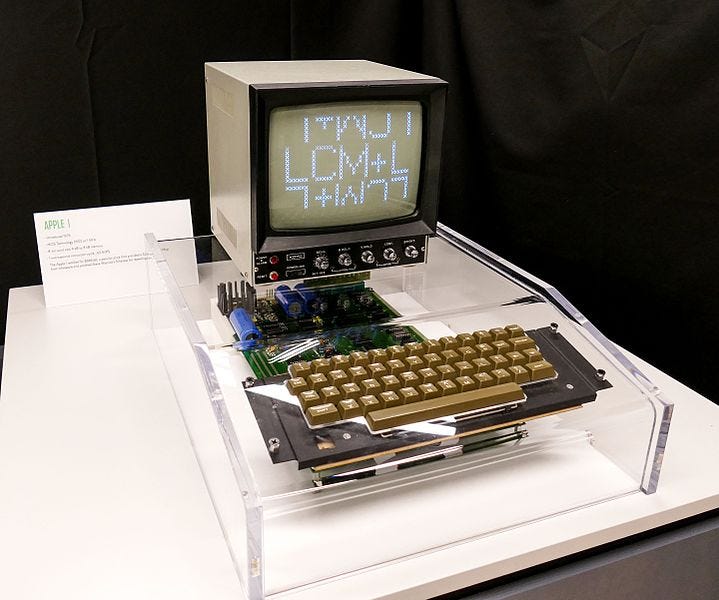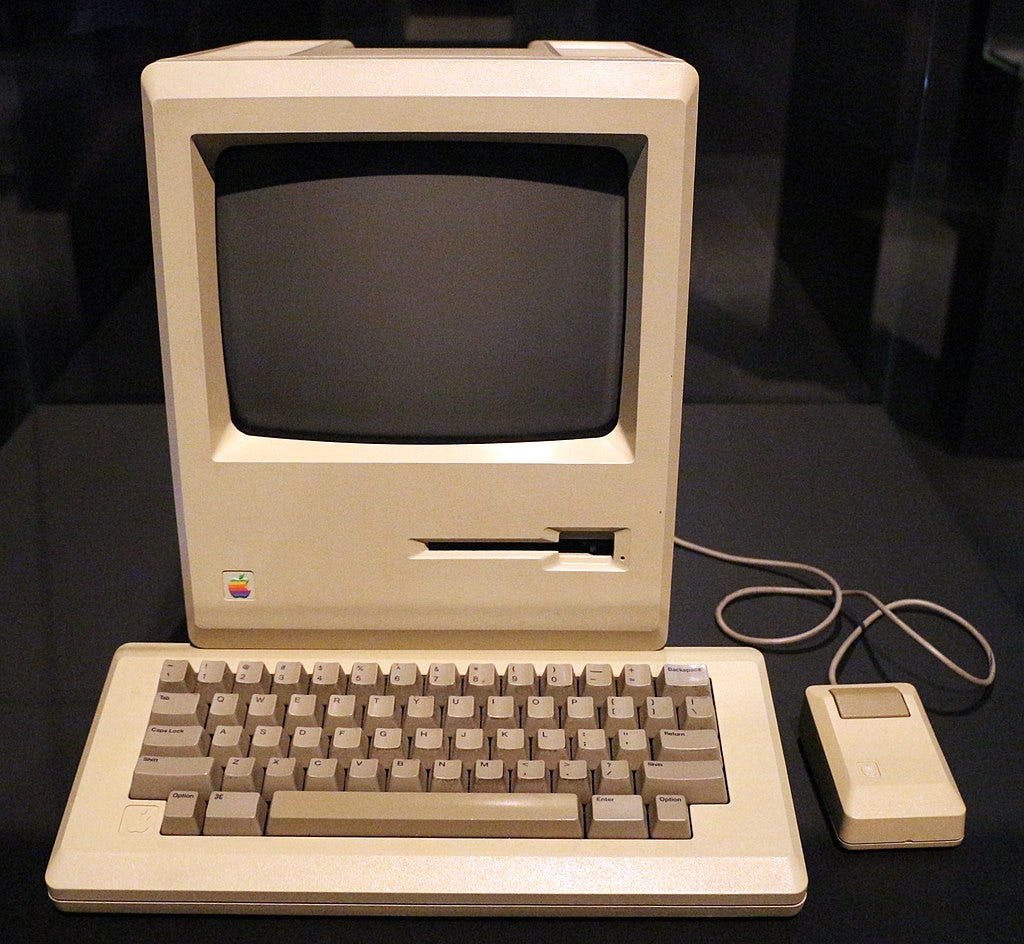Apple: From "open hardware" to "rent your computer"
It took 46 years... but Steve Jobs' dream of computers that you can never own, or work on, is fully here.
In 1976, the founders of Apple Computer released their very first computer… the Apple I.
One noteworthy aspect of the Apple I: Steve Wozniak and Steve Jobs literally gave people the full schematics for the entire system.
Heck. They even helped local computer enthusiasts build their own.
Jump forward in time to the Apple II… and Steve Jobs fought with his co-founder (Wozniak) about expansion slots. Specifically, Steve Jobs hated the idea of the Apple II being an expandable machine… and argued that it should have, at most, two expansion slots. Wozniak stood his ground and the Apple II line always had at least 7 expansion slots.
Jump forward again to the release of the original Macintosh…
During development, Steve Jobs mandated that the Macintosh not have any expansion slots at all. He argued that the Mac should be a completely locked down system.
And, being as Wozniak was not on the Macintosh project, this locked down reality came to pass. Not a single expansion slot. Heck. Not even a RAM slot.
Flash forward to 2022.
Apple’s new M1 based computers are designed to be purposefully difficult to upgrade — and nearly impossible to repair. With the iPad and iPhone line being utterly locked down… lacking even the most basic ability to change out a battery.
But, technically, us users still own the hardware. Which has been a constant thorn in the side of Apple.
That is all about to change.
According to reports from Bloomberg and Zero Hedge, Apple is preparing to launch a hardware subscription service.
Apple’s obvious end goal: You won’t own any of your hardware (or the software that runs on it). And you’ll be happy.
This truly is the result of Steve Jobs’ decades-long focus on users not being able to repair or upgrade their own computers. Without Steve Wozniak to reel the company back in… Apple appears set to fulfill the original vision of Steve Jobs.
And every Apple customer is the worse off because of it.
Lunduke.Substack.com — Lunduke.Locals.com — Reddit — Twitter — Facebook
Current subscriber exclusives for The Lunduke Journal:
eBooks: Lunduke's Dad Jokes About Computers, vol. 1, Linux for Hank (kids book), Half a Decade of Linux-y Shenanigans, Lunduke Journal Quarterly - Volume 1, Paper Doll Tux, Road-Sign Hank & the Aliens (comic book), Operating System Not Found(choose your own adventure)
Games: Linux Tycoon (Linux, Windows, DOS), 2299 (Linux, Windows)
+ Exclusive Podcasts, Articles, & 24x7 Telnet BBS Access





I don’t truly have a problem with the classic Macintosh systems. They were, at least, serviceable. Laptops and phones with batteries glued in, the pursuit of thinness überalles, and software systems that are both constantly changing and neglecting the UNIX core of macOS… These things are not good. The complete integration of their system to one massive chip? This doesn't bother me as it is what yields such dramatic performance. However, Apple does lack imagination. It would be easy to add, at least, NVMe and SATA without severely sacrificing the performance of M1. Adding expansion via at least one PCIe slot in the Mac Studio vertically would have been easy. It would likewise have been simple to add one sidewise in the Mini. NVMe drives are small enough to fit in the thinnest of laptops, and making these machines easy to open and service would have been trivial (as Framework has proven). At this point, the non-serviceable nature of the Macintoshes and iTrinkets (and all of the other devices that follow the Apple’s lead) are becoming an environmental hazard. It’s super odd how people claim to care about the environment and then manufacture millions of tons of e-waste…
Maybe Steve Jobs seen his computers as an appliance like a stove or microwave where the Woz seen them as something to tinker with. However purposely making devices where you cannot repair them when they break is not cool. If they lease their hardware to you then if something happens to it they should be obligated to fix it and replace it when it's worn out since you are leasing the hardware. Like car companies lease vehicles today they should be on the hook to live up to their side. It just doesn't happen that way. IMHO you need to be very careful with the lease agreement. This may be good for some that want the shiny new device every 2 to 3 years but not for me. I want to be using the same hardware 10 or 15 years from now.